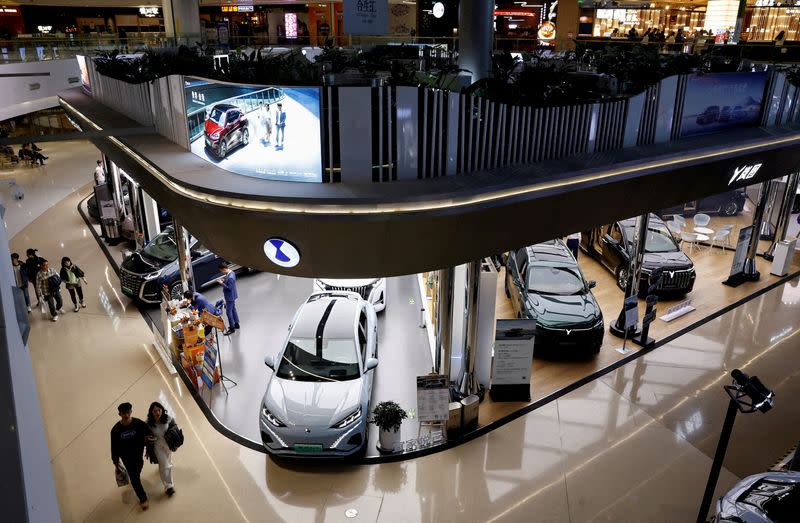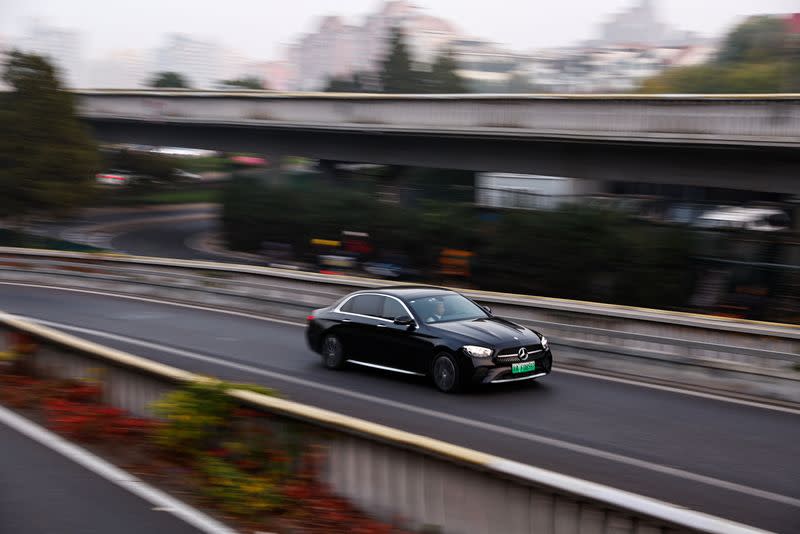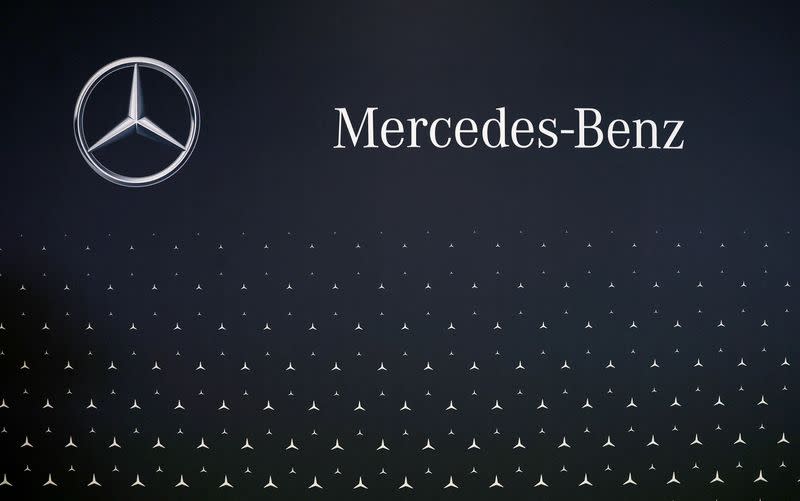Mercedes-Benz says it will continue to invest in Chinese tie-ups
By Sarah Wu
BEIJING (Reuters) -Mercedes-Benz executives said on Thursday the company would continue to invest in tie-ups with Chinese partners including automaker BAIC Group, underscoring the importance of China to its global strategy.
China is "the most dynamic new energy vehicle market", country chief Hubertus Troska said at a press conference on the opening day of the Beijing auto show.
"You have to be here and you have to be part of that innovation cycle," Chief Executive Ola Kaellenius told Reuters on the sidelines of the show. "We have been steadily growing our partner group and will continue to do so."
Mercedes-Benz China sales chief Duan Jianjun told the same event that he hoped the new electric models the German automaker brought to this year’s show would put to rest "rumours" that the company had given up on electrification.
The executives said the electric version of the company's G-Class off-road vehicle, premiered in Beijing and Los Angeles on Wednesday, would launch in China this year.
In February, Mercedes pushed back some of its sales goals for electrified vehicles by five years and assured investors it would keep sprucing up its combustion-engine models.
The automaker now expects sales of electrified vehicles, including petrol-electric hybrids, to account for up to 50% of its total by 2030 - later than its forecast from 2021, when it aimed to hit 50% by 2025 with mostly all-electric cars.
Mercedes is among foreign automakers scrambling to reset their strategies in the world's largest auto market as local rivals aggressively roll out new mass-market and premium EVs. The company's first-quarter sales in China fell 12%.
Over the past five years, China has shifted from the combustion-engine age when foreign-made cars, especially from Germany and Japan, were seen as the pinnacle of global engineering, to the electric age, in which foreign automakers are learning from Chinese counterparts that have moved faster on developing EV technology.
Pointing to Mercedes's sales in China growing from tens of thousands in the early 2010s to more than 700,000 cars last year, Kaellenius said China was its "most significant market".
"We will, in a thoughtful way, grow that as we go forward," he said. "It is about growth, but growing in a profitable manner."
(Reporting by Sarah Wu; Writing by Brenda Goh; Editing by Edwina Gibbs and Mark Potter)

 Yahoo Finance
Yahoo Finance 


